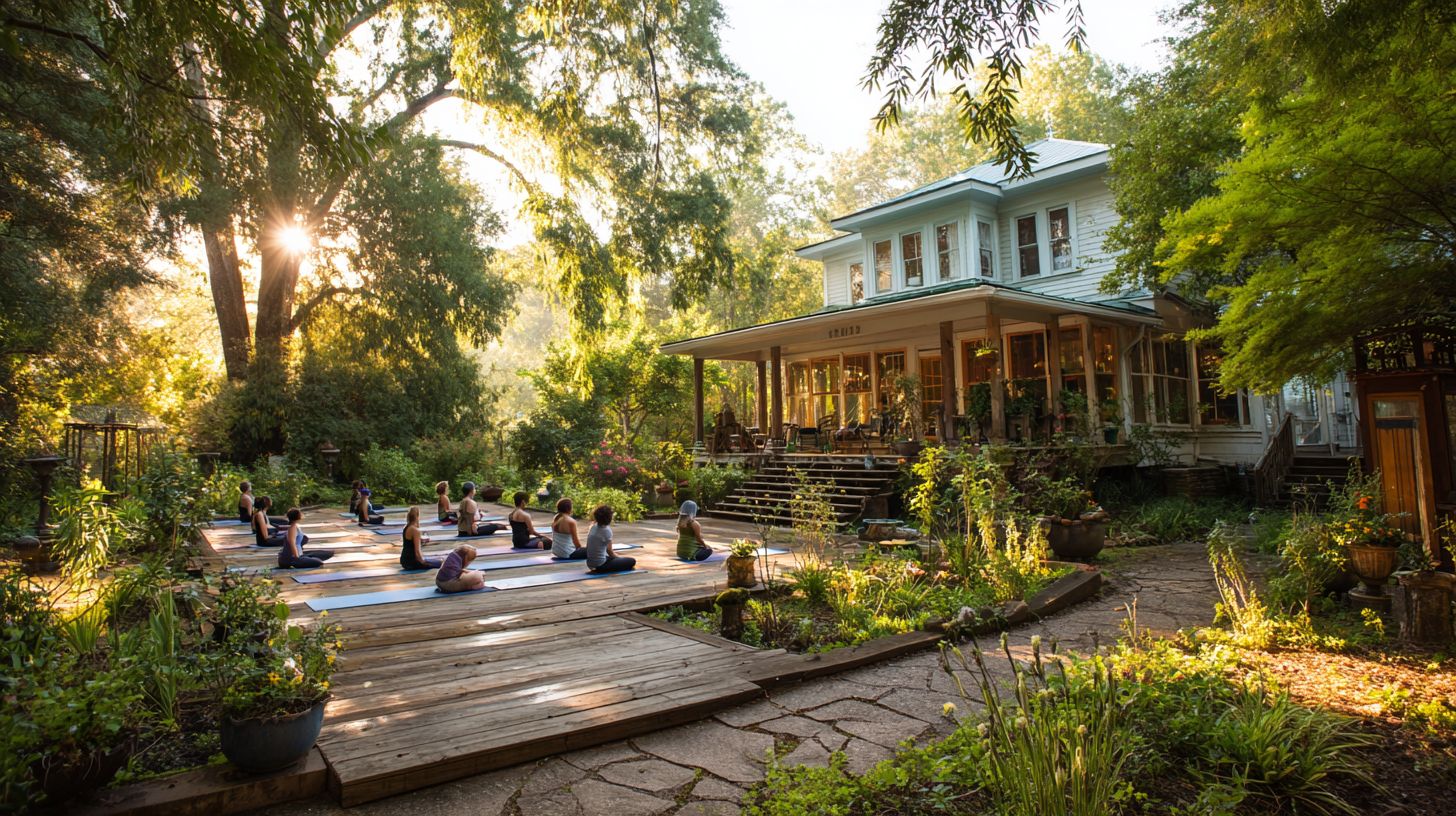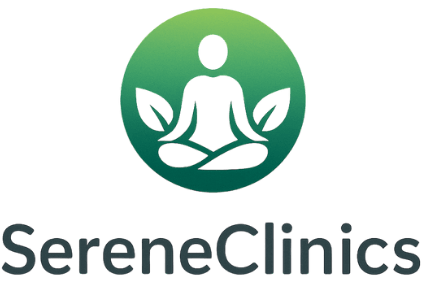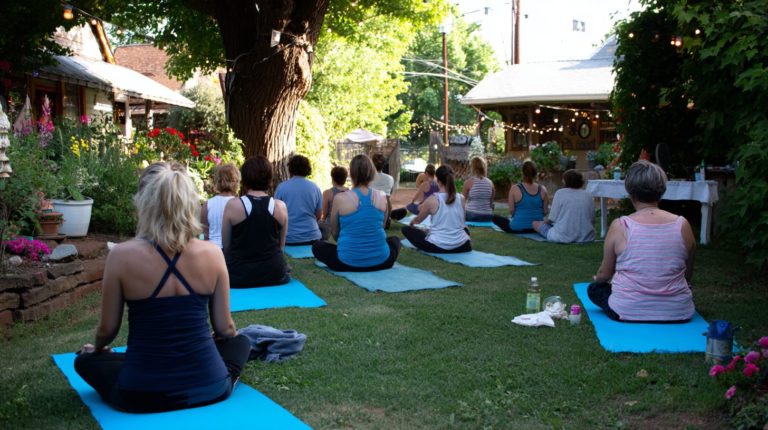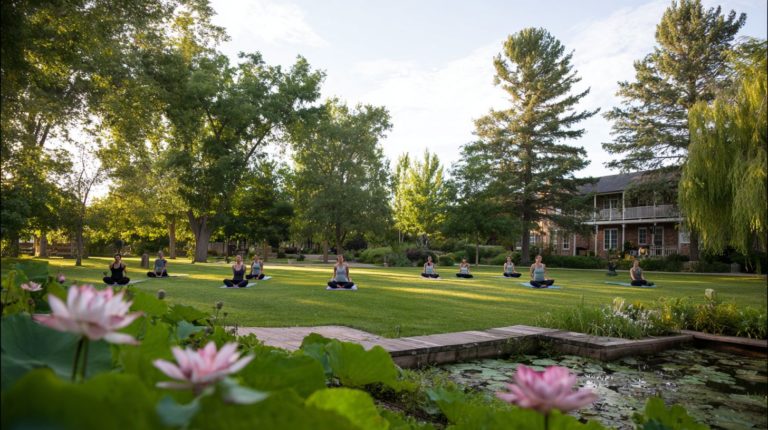Top 5 Holistic Health Centers in Selma, Alabama
Nestled in the heart of Alabama, Selma is emerging as a surprising hotspot for holistic health, blending community spirit with mind-body care.
Top five picks:
- the Selma Center for Nonviolence, Truth & Reconciliation;
- Henderson Chiropractic Clinic;
- Rural Health Medical Program’s Dallas County Health Center and Central Office;
- and Arabella Health & Wellness.
Key aspects include what fuels this vibe, services offered, wellness benefits, tips to find your perfect fit, and local resources to get started.
Key Takeaways:
Contents
- 1 1. Selma Center for Nonviolence, Truth & Reconciliation
- 2 2. Henderson Chiropractic Clinic
- 3 3. Rural Health Medical Program, Inc. (Dallas County Health Center)
- 4 4. Arabella Health & Wellness of Selma
- 5 5. Rural Health Medical Program, Inc. (Central Office)
- 6 What Makes Selma, Alabama, a Center for Whole-Person Health?
1. Selma Center for Nonviolence, Truth & Reconciliation

The Selma Center for Nonviolence, Truth & Reconciliation in Selma, AL, stands as a key spot for mental and behavioral healthcare, focusing on education and prevention to help folks deal with trauma and PTSD through programs like anger management.
It serves an important function in community health services by providing mental health support that fits the needs of people dealing with the long-lasting effects of historical and personal traumas in the area. Drawing from evidence-based practices, such as those recommended by the American Psychological Association, the center provides counseling sessions that aid in PTSD recovery, helping residents rebuild resilience one step at a time.
Educational prevention strategies include workshops on conflict resolution and emotional regulation, designed specifically for Selma’s diverse population, often in collaboration with local institutions like the University of Alabama. These sessions help people build better relationships and lower violence in their neighborhoods.
Anger management classes meet every week and use interactive techniques from studies published in the Journal of Consulting and Clinical Psychology. Those studies show up to 70% improvement in participants’ self-control.
The center puts these elements together to heal and create a safer, more unified community.
2. Henderson Chiropractic Clinic
Henderson Chiropractic Clinic in Selma, Alabama, provides behavioral healthcare and therapy choices such as cognitive behavioral methods for conditions including depression, anxiety, bipolar disorder, and ADHD.
At this facility, practitioners seamlessly integrate spinal adjustments and physical therapies with cognitive behavioral therapy (CBT) sessions, recognizing how musculoskeletal health influences mental well-being.
For example, gentle manipulations help lower tension that makes anxiety worse, while CBT gives patients ways to handle stress and change negative thoughts.
Personalized treatment plans are crafted after thorough assessments, tailoring interventions to each individual’s needs-whether it’s bi-weekly adjustments paired with mindfulness exercises for depression or structured goal-setting for ADHD management.
Local patients in Selma benefit from accessible, community-focused care, with outcomes supported by research like a 2019 study in the Journal of Chiropractic Medicine showing improved mood scores in integrated approaches.
This approach treats symptoms and builds lasting strength so residents can live balanced lives.
3. Rural Health Medical Program, Inc. (Dallas County Health Center)

Rural Health Medical Program, Inc., at the Dallas County Health Center, provides essential health services including HIV testing and treatment, STI care, PrEP and PEP options, plus substance use disorder counseling for recovery and support.
These services help people in Selma’s rural areas. Reaching city clinics is hard for them because of the long drives and lack of transportation.
Imagine walking in for quick, confidential HIV and STI screenings that catch issues early, backed by the latest CDC guidelines showing rural Alabama faces 20% higher STI rates than urban areas, per a 2022 study from the Journal of Rural Health.
They give PrEP to people at risk of HIV to stop infection and PEP for emergencies right after exposure. They provide quick access,
and NIH studies show this cuts transmission by up to 99%.
On the recovery front, their counseling dives into personalized substance use support, drawing from evidence-based models like those from the Substance Abuse and Mental Health Services Administration (SAMHSA), helping residents rebuild lives amid isolation challenges.
This setup bridges gaps, fostering healthier outcomes without the need for lengthy trips.
4. Arabella Health & Wellness of Selma
Arabella Health & Wellness of Selma, linked with efforts like Aletheia House in Selma, Alabama, offers targeted care for opioid addiction through detox programs, therapy, and motivational interviewing techniques.
These detox initiatives provide medically supervised withdrawal to manage symptoms safely, reducing risks like severe discomfort or relapse, as supported by guidelines from the American Society of Addiction Medicine.
Therapy sessions, usually in groups or one-on-one, tackle root causes and teach ways to cope, based on cognitive-behavioral methods. Studies by the National Institute on Drug Abuse show these methods result in up to 60% higher rates of long-term recovery.
Motivational interviewing is important here. It guides people to think about their own reasons for change, which builds their own motivation without arguing.
Aletheia House also works as a halfway house in the Selma area. It provides sober living spaces with help from peers and classes on daily skills to make the shift back to regular life simpler.
Together, they address the opioid crisis directly. Alabama sees more than 1,000 overdose deaths each year, according to CDC data.
They offer full recovery options that fit local conditions and support lasting sobriety in an area badly affected by drug problems.
5. Rural Health Medical Program, Inc. (Central Office)

The Central Office of Rural Health Medical Program, Inc., accepts insurance including Medicaid, holds CARF accreditation, and boasts a TrustScore of 4.03 while addressing schizophrenia, OCD, addictions, and eating disorders.
This makes it highly accessible for those in rural areas who might otherwise struggle with costs.
By partnering with major insurers and Medicaid, it ensures that quality care reaches underserved populations without financial barriers.
The CARF accreditation shows the organization’s dedication to strict standards in rehabilitation services. The Commission on Accreditation of Rehabilitation Facilities provides this recognition after checking programs for quality patient results and ethical methods.
It has a 4.03 TrustScore on sites like Trustpilot. This comes from patient reviews that highlight kind staff and useful treatments. These reviews make people confident in its full care methods.
For schizophrenia, it offers evidence-based cognitive behavioral therapy (CBT) and medication management, supported by studies from the National Institute of Mental Health showing CBT’s efficacy in reducing symptoms by up to 50%.
OCD treatments include exposure and response prevention, backed by research in the Journal of Clinical Psychiatry.
Programs for recovering from addiction use motivational interviewing and combine it with the 12 steps, which matches SAMHSA guidelines showing 40-60% success in long-term recovery.
Eating disorder interventions feature nutritional counseling and family-based therapy, drawing from credible examples like those at the Renfrew Center, emphasizing body image restoration and relapse prevention.
What Makes Selma, Alabama, a Center for Whole-Person Health?
Selma, Alabama, stands out as a main center for complete health care because of organizations such as Five Horizons Health Services and Aletheia House.
These groups provide combined services for HIV and STI prevention using PrEP and PEP, plus Naltrexone to help with addiction, and they address mental health issues like depression, anxiety, PTSD, bipolar disorder, ADHD, and schizophrenia. They apply behavioral health methods that mix physical, emotional, and group well-being to fit the requirements of people in the area in a practical and available way.
These organizations create a helpful setting where people can receive treatments that fit their needs and include more than just medication. These treatments feature mindfulness exercises, advice on nutrition, and group therapy meetings to support recovery that lasts.
For instance, PrEP has been shown by the CDC to reduce HIV transmission risk by up to 99% in high-risk populations, a critical tool in Selma’s efforts to combat local epidemics.
In the same way, Naltrexone helps control opioid addictions. It fits with methods that fix the main problems, such as trauma.
Mental health services emphasize community integration, drawing from studies by the National Alliance on Mental Illness (NAMI) which highlight how integrated care reduces relapse rates by 40% among those with bipolar disorder or PTSD.
People living here can easily use walk-in clinics and telehealth services. This makes good health a real part of everyday life, not just an idea. It helps the community succeed despite past problems and economic difficulties.
What Services Do Whole-Person Health Centers Provide?

Health centers in Selma provide many services, including HIV testing and treatment, STI management, counseling for substance use disorders, recovery support, education, and prevention methods.
These centers provide complete medical and emotional support by combining doctors’ skills with counseling. This helps people deal with difficult health problems.
For example, they offer private HIV tests with quick CDC-approved tests, then connect people right away to HIV drugs that are 99% successful at lowering virus levels, based on a 2022 study in The Lancet.
Care for sexually transmitted infections includes quick screening and treatment for infections like chlamydia and gonorrhea, which can cut transmission rates by as much as 70%, based on World Health Organization data.
Substance use disorder programs offer evidence-based counseling, such as cognitive-behavioral therapy, paired with peer-led recovery groups modeled after successful initiatives by the Substance Abuse and Mental Health Services Administration (SAMHSA).
Education and prevention efforts use community workshops to teach residents about safe practices. This builds ongoing health in a supportive setting, much like the comprehensive approaches seen at the top holistic health centers in Huntsville, Alabama.
How do these centers use mind-body wellness?
These centers use mind-body methods by mixing mental and behavioral health care with therapies such as cognitive behavioral techniques and motivational interviewing to treat trauma and PTSD.
Such approaches help individuals recognize how thoughts influence physical sensations, fostering a deeper connection between emotional healing and bodily recovery. For instance, practitioners in Selma draw on cognitive behavioral therapy (CBT) to reframe negative patterns stemming from trauma, much like the methods validated in a 2018 study by the National Center for PTSD, which showed CBT reducing PTSD symptoms by up to 50% in participants.
Motivational interviewing helps clients find their own reasons to change. People often combine it with yoga or mindfulness sessions to reduce physical symptoms.
Local providers, like those at Selma’s Integrated Wellness Hub, run support groups where survivors talk about their experiences. These groups build resilience with methods that follow the American Psychological Association’s guidelines for trauma-informed care. Explore top holistic health centers in Mobile, Alabama for additional regional options to support your wellness journey.
This overall approach eases immediate distress and creates plans for lasting health.
What Are the Benefits of Overall Approaches for Local Residents?
These services help local residents by offering detox from opioid addiction, anger management, and treatment for depression, anxiety, bipolar disorder, and ADHD with full support.
These methods combine therapy, mindfulness practices, and nutritional guidance for recovery that lasts. People with opioid dependence can use detox programs that apply acupuncture and herbal remedies to ease withdrawal symptoms.
A 2020 study from the National Institutes of Health found that these programs keep patients 30% longer than standard methods.
Anger management sessions employ cognitive-behavioral techniques alongside yoga, helping participants regulate emotions more effectively. This approach aligns with the principles outlined in our analysis of Holistic Health Benefits of Yoga: Physical, Mental, and Spiritual.
In addressing mental health challenges, community members find solace in group support circles and biofeedback, leading to decreased anxiety levels by up to 40%, per research from the American Psychological Association.
These specific programs for Selma’s residents ease their current troubles and help them develop lasting strength. This improves their general health and reduces the risk of problems returning through continued full care.
How to Select the Best Wellness Center for Your Needs?
To pick the best treatment center, choose ones that accept insurance and Medicaid, have CARF accreditation, a good TrustScore of 4.03, and treat OCD, addictions, and eating disorders.
When looking for facilities in Selma, Alabama, choose ones connected to the Alabama Department of Mental Health. These places usually meet state rules for proper care.
A 2022 study by the National Alliance on Mental Illness highlights how CARF accreditation correlates with better patient outcomes, reducing relapse rates by up to 25% in addiction treatment.
Look at reviews on sites like Trustpilot to see what actual users say. Choose centers that combine therapies such as mindfulness practices and nutrition guidance for eating disorders.
Use the Substance Abuse and Mental Health Services Administration (SAMHSA) directory to find approved providers who combine overall health methods, including those at top holistic health centers in Birmingham, Alabama, with research-supported OCD treatments. They provide easy-to-reach help for lasting recovery.
Are there community resources in Selma for whole-person health?
Yes, Selma, AL, has good community resources such as Aletheia House and Arabella Health & Wellness. They provide behavioral healthcare and help for schizophrenia.
These places have high Recovered TrustScore ratings.
These centers offer care that combines therapy, medication management, and advice on daily habits to help people deal with mental health problems.
For those dealing with schizophrenia, residents can access specialized programs focusing on symptom stabilization and social reintegration, drawing from evidence-based practices recommended by the National Institute of Mental Health.
Aletheia House emphasizes peer support groups, fostering a sense of belonging, while Arabella Health & Wellness incorporates mindfulness and nutritional guidance for overall well-being.
With Recovered TrustScores above 4.8 out of 5, based on patient feedback and outcomes tracked over years, they reflect Selma’s commitment to a nurturing environment.
Local studies, such as those from the Alabama Department of Mental Health, highlight how such networks reduce hospitalization rates by up to 30% through ongoing community involvement, ensuring one feels supported every step of the way.

Sheetal Sharda has a background in CS. She got an interest in Holistic living back in 2018, and has since started exploring more into Naturapathy, Holistic Living, Yoga, and more. She got inspired to start SereneClinics to help people find reliable centers across the world.






